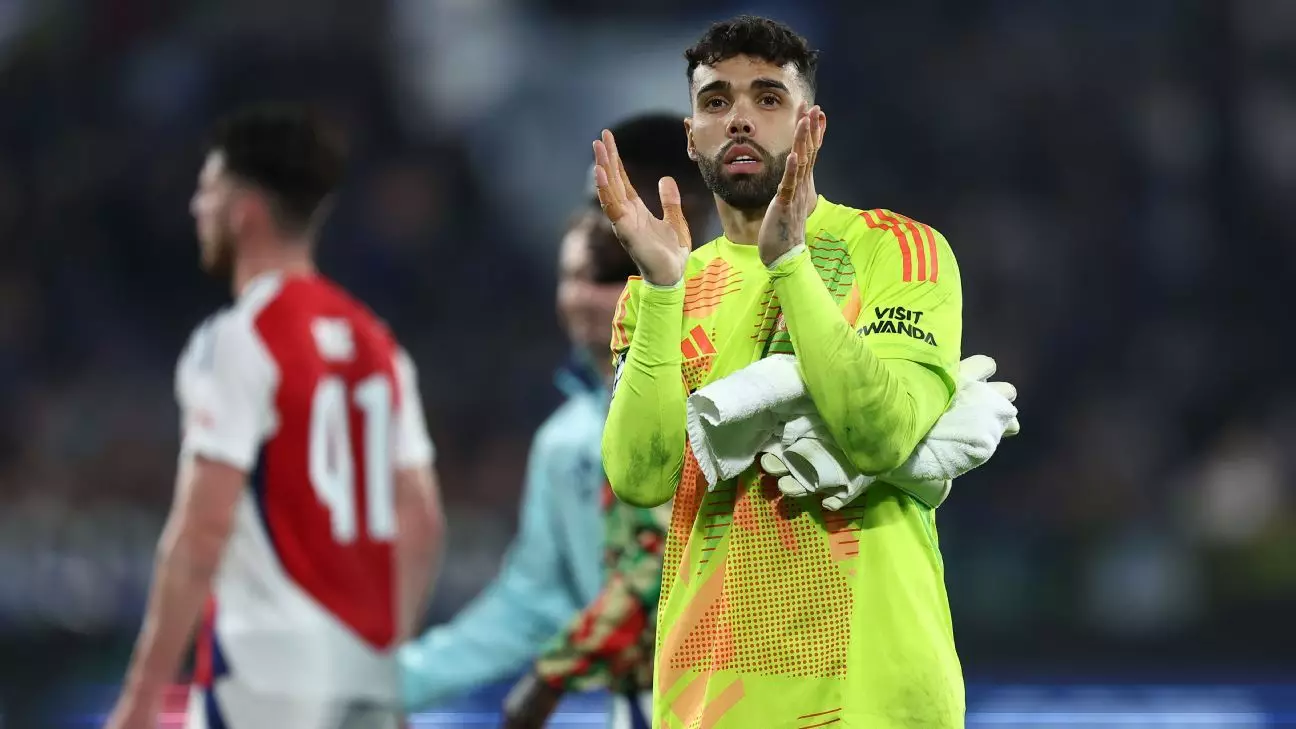Arsenal commenced their Champions League journey with a goalless draw against Atalanta at the Gewiss Stadium in Bergamo on a Thursday evening that failed to ignite the excitement usually associated with the tournament. Both teams largely struggled to convert opportunities into clear-cut chances throughout the match, leaving spectators wanting more in what was a lackluster opening to their respective campaigns.
The first half of the match was uneventful by football standards, marked by a few half-chances but little in the way of genuine threat. Bukayo Saka provided the best moment before the break with an attempt from a free-kick that forced a save but did not truly worry Atalanta’s goalkeeper. Gabriel Martinelli also had a chance but failed to connect effectively, as his effort from just inside the box sailed harmlessly over the bar.
As the second half unfolded, Arsenal’s Thomas Partey presented Atalanta with a golden opportunity to take the lead when he conceded a penalty. However, the resilience of David Raya shone through as he executed two remarkable saves against Mateo Retegui, averting a potential disaster for the Gunners. Atalanta’s Juan Cuadrado soon followed with attempts from outside the area, but he too failed to find success, largely due to a stout Arsenal defense.
Despite the missed penalty, Arsenal’s overall defensive performance was commendable. They managed to restrict Atalanta to attempts from distance, with most of their offensive threat being neutralized. A well-organized back line, which included the likes of William Saliba and Gabriel, displayed discipline and intelligence in their positioning, often cutting down the host’s attempts to penetrate deeper.
One standout performer was Declan Rice, whose ability to read the game and position himself effectively made him a strong presence in midfield. His contributions created a link that facilitated transition between defense and attack, ultimately stabilizing Arsenal’s structure.
Attacking Inefficiencies
While Arsenal’s defense reclaimed its pride after a challenging domestic start, their offensive unit revealed areas needing improvement. Mikel Arteta’s men often struggled with their final passes, resulting in wasted opportunities and turnovers. Gabriel Martinelli had what was arguably their best chance in the second half, yet he failed to find the target after being set up by Raheem Sterling, who had come on as a substitute. This missed opportunity symbolized Arsenal’s struggle to convert possession into tangible scoring threats, a concern that will need addressing as they look to gain momentum in the Champions League.
Mikel Arteta’s tactical decisions yielded a point but served as a reminder of the balancing act faced by managers aiming to blend defensive solidity with attacking flair. His substitutions were timely, especially bringing in Raheem Sterling, who immediately created the most significant threat of the match. Arteta’s decision to maintain a patient approach reflects a greater strategy geared towards ensuring Arsenal remains hard to break down, even if it sacrifices offensive creativity on occasion.
Atalanta’s press wasn’t relentless but was organized enough to keep Arsenal from finding much rhythm. Their management of the game showcased an understanding of their strengths and the weaknesses present in Arsenal’s game plan. Despite the lack of significant scoring chances on their end, they demonstrated that they could engage their fierce rivals, making it a competitive encounter even without a goal to mark the occasion.
Looking Ahead: Room for Improvement
While a point away against last season’s Europa League winners is not without merit, it is evident that Arsenal has much to ponder as they sharpen up their performance for upcoming fixtures. The encounter revealed both positive defensive strategies and alarming offensive inefficiencies. With the right adjustments, they can establish a more potent attack while maintaining the robust defensive display that made them challenging to beat in Bergamo.
Ultimately, while the Gunners head home with a clean sheet and a point, the challenge ahead will be to convert this early-season resolve into proactive attacking play. As they prepare for the next phase of the tournament, Arsenal must hit the training ground with an emphasis on translating possession and build-up into meaningful goal-scoring chances, an area crucial to their hopes in the Champions League.


Leave a Reply